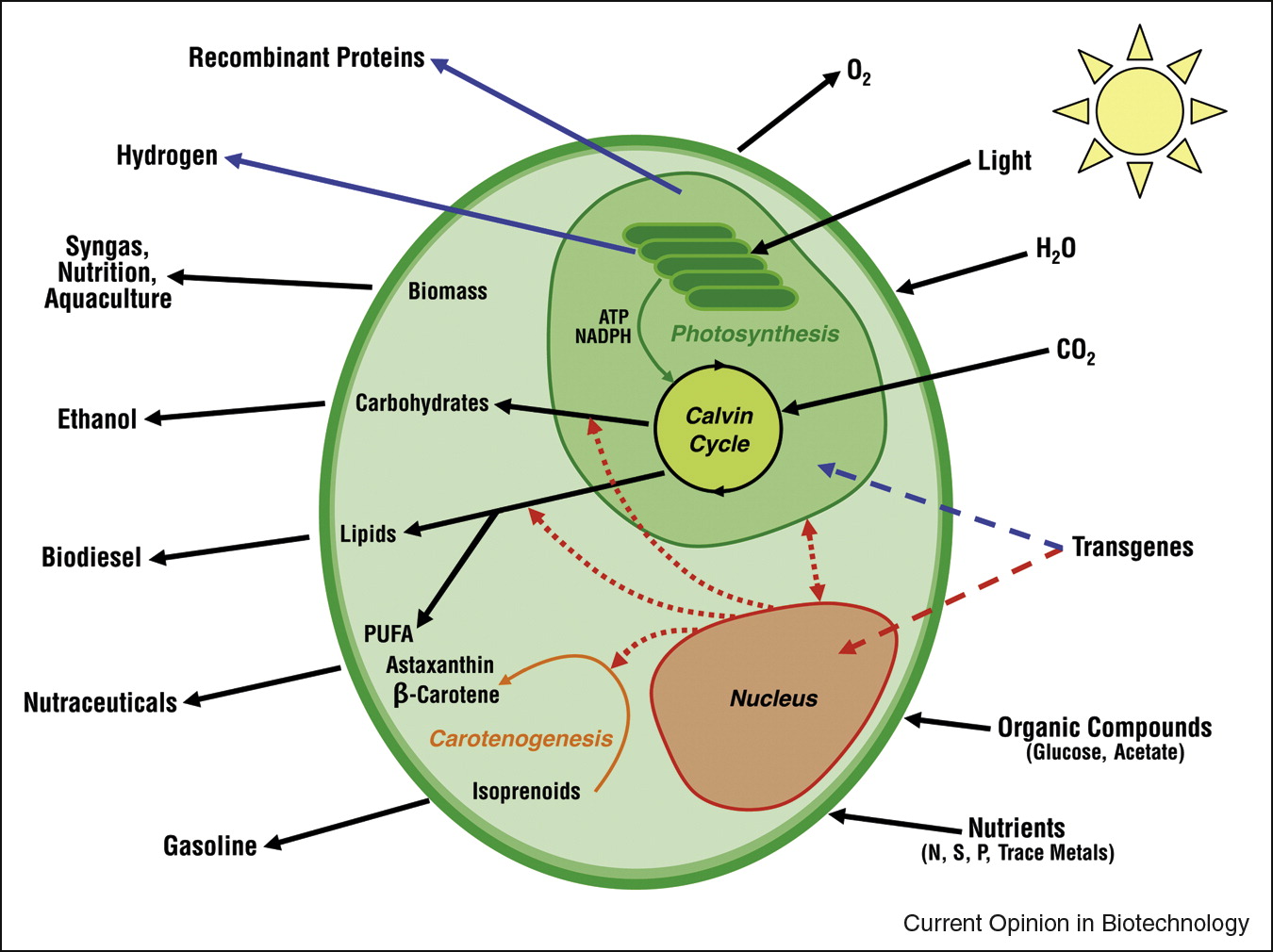Micro-Algae Engineering
Subtopics
Microalgae have the potential to revolutionize biotechnology in a number of areas including nutrition, aquaculture, pharmaceuticals, and biofuels. Although algae have been commercially cultivated for over 50 years, metabolic engineering now seems necessary in order to achieve their full processing capabilities. Recently, the development of a number of transgenic algal strains boasting recombinant protein expression, engineered photosynthesis, and enhanced metabolism encourage the prospects of designer microalgae. Given the vast contributions that these solar-powered, carbon dioxide-sequestering organisms can provide to current global markets and the environment, an intensified focus on microalgal biotechnology is warranted. Ongoing advances in cultivation techniques coupled with genetic manipulation of crucial metabolic networks will further promote microalgae as an attractive platform for the production of numerous high-value compounds.
References
Rosenberg, Julian N., George A. Oyler, Loy Wilkinson, and Michael J. Betenbaugh. "A Green Light for Engineered Algae: Redirecting Metabolism to Fuel a Biotechnology Revolution." Current Opinion in Biotechnology 19, no. 5 (10, 2008): 430-436.
